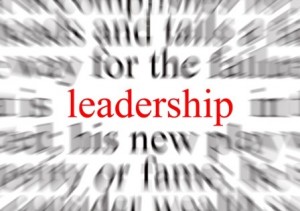Leadership is the key ingredient that makes the difference between an average club & a great club
 Leadership is the key ingredient that makes the difference between an average club and a great club. High performance leadership at club level is multifaceted and requires a combination of strategic thinking with thorough attention to detail. It is important to remember that all club officers can make a significant impact on their club regardless of their role. It is all down to you whether this impact will be positive or negative.
Leadership is the key ingredient that makes the difference between an average club and a great club. High performance leadership at club level is multifaceted and requires a combination of strategic thinking with thorough attention to detail. It is important to remember that all club officers can make a significant impact on their club regardless of their role. It is all down to you whether this impact will be positive or negative.
A club officer’s mission is to serve your club and its members
Your main mission as a club officer is to serve your club and its members. If at any moment an occasion arises during which your interests and the wider interests of the club come in conflict, the club’s interests must take precedence. This can be the case during club officer training season for example. A club officer role must be taken seriously since your actions can negatively impact the club and its members. This can happen through members becoming dissatisfied by a lack of vision for the club, holding poor quality meetings that haven’t been organised in advance, not proactively converting guests into members, or not paying dues to Toastmasters HQ. As a leader you simply strive to lead by example!
Planning for success
Planning for success early on the Toastmasters year can save a lot of hassle further down the line and can more importantly allows for things to be run on “autopilot” to an extent. This planning begins by drawing a budget for the year ahead, a club success plan outlining key objectives, and knowing who to target for completion of Distinguished Club Program (DCP) objectives. This planning ethos needs moreover to be cascaded down to the members to encourage them to set up educational objectives for themselves. Tie this in with a strong mentoring program and monitoring on the part of the Vice President Education (VPE) and meeting the educational objectives of the DCP should be a piece of cake!
Avoiding a silo mentality can do wonders to make a club more successful. All club officers interact and depend on each other to various degrees. Information coming from the VPM about a member taking a temporary break from Toastmasters can, for example, prevent frustration on the VPE and be of use to other committee members as well. Club officers need to consequently interest themselves in each other’s activities to gain a better familiarity of what the club does as a whole. It is especially crucial for the club President to be on the top of everything happening in the club at all times. This is mainly in order to assess the overall direction of travel against the objectives set for the year and to spot any potential issues arising.
Navigating the numerous aspects of club management is helped by a large degree of attention to detail. Regular feedback from visiting guest General Evaluators about the lack of signs on the door, or queries about when the club’s meets can be a sign that something is slightly wrong and potentially putting people off, which can be easily rectified. Providing more educational opportunities for members through extra roles and speech slots can be possible by juggling the agenda. The same goes for managing club finances, tools can be designed to know exactly how many members a club needs to break-even.
“With power comes responsibility!”
All in all running a Toastmasters club is in many ways like running a business. Our actions as a club officer will define our year of office and will impact the club and its members in various ways. The power to ensure that the impact is solely positive lies in your hands. As someone once said “with power comes responsibility!” 
~Florian Bay, Division B Director 2016-17
